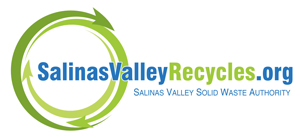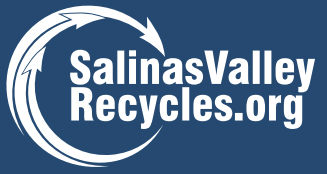When we think about “Hazardous Waste,” we tend to think about barrels of sludge or glowing radioactive ooze, but it’s not all so obvious. Toxic products can lurk in many corners of your business; pesticides for landscaping, oil in the motor pool, worn out fluorescent bulbs and chemical cleaners in the maintenance area. When these products are left over, unwanted or unusable, they turn into potentially harmful waste, also known as Hazardous Waste.
Obvious Toxics
It is easy to imagine why certain toxics, for example a bottle of weed killer or a canister of diesel fuel, might pose a danger to us and the environment. Inhaling fumes and skin contact can damage our health, especially that of our children. Throwing these products into the trash or pouring them down the sink or into a storm drain pollutes our soil, groundwater, rivers and bay, and can harm wildlife.
Hidden Toxics
Other hazardous waste is less obvious in its toxicity. For example, electronics such as computers and cell phones, batteries, fluorescent light bulbs and thermostats are safe while in use, but turn into toxic waste when discarded. The reason is that they contain heavy metals like mercury and cadmium, and other harmful chemicals that are released into the environment when these products are crushed in the landfill.
Less Toxic Alternatives
Next time you consider buying or using a product with potentially harmful ingredients, take a moment to read the label and ask yourself:
“Do I really need to use this product? Is there a safer way I can do this?”
There may be less toxic alternatives that can help you do the job at hand just as well! Often you’ll also be able to save money.
Here are a few tips:
- Choose water-based latex paint instead of oil-based paint. You can even pick up free, recycled paint at our Household Hazardous Waste facility.
- Learn about less-toxic landscaping and pest control. If you have to use pesticides, buy the least toxic product and apply only where needed.
- Replace mercury-containing items with non-mercury containing alternatives, such as digital thermometers and mercury-free thermostats.
- Buy less-toxic all-purpose cleaners instead of specialty cleaners. Or try non-toxic alternatives: Create your own Non-Toxic Cleaning Recipes.
- Try refillable spray bottles instead of aerosol sprays.
What Goes Where App
Does it go in the trash? Is it recyclable? Is it hazardous waste? Click on the picture of the What Goes Where App to discover where to dispose of your used items properly!


